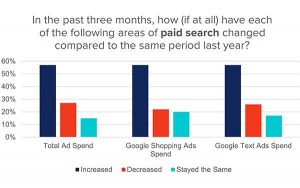By Gwen Moran
Earlier this month, U.S. Defense Secretary Lloyd Austin made headlines after it became clear that he was in the intensive care unit following surgery, but had not notified President Biden, or his staff.
While most of us don’t have jobs that rise to the level of notifying the nation’s leadership before we activate our out-of-office autoresponder, we typically have people who rely on us in our workplaces and specific policies for how we call out sick. Unfortunately, it can be a tricky thing to do at some workplaces.
First of all, everyone doesn’t get sick leave. But even if you do, one survey from BambooHR found that 90% of employees worked through an illness last year and workers’ concerns about workload often outweigh their concerns about being sick. And that anxiety may be justified. The survey found that four in five supervisors were skeptical about sick day requests.
Whether the issue is a mild illness or a procedure that will take you out of commission for a while, broaching sick days and medical leave with your employer can feel daunting. Use these expert tips to help guide you through the process:
Check your company’s policies
Unless it’s very small or new, your company likely has written policies regarding taking time off for illness or medical issues. If you’re dealing with a cold or virus and expect to be out for a day or two, you may just need to let your supervisor know. How you do that (email, Slack message, or a call) depends on your company’s specific policy, but doesn’t usually require a lengthy explanation. Keep your message short, give as much heads up as possible, and promise to update your manager on when you’ll be able to return.
If you’ll be out longer than a day or two, you may need a doctor’s note stating that you were, indeed, ill and need the time off, says Chris Goldsmith, vice president and senior consultant at employee benefits consulting firm Segal. And if your situation is more serious—for example, if you’re dealing with a bigger injury or ongoing physical or mental illness—you may need to plan for a longer leave.
Know what you need to disclose—and when
Employment attorney Jon Bell, founder of Bell Law Group, says that while you don’t need to disclose your diagnosis, you do need to let your employer know how long you expect to be out.
Asha Tarry, founder of mental health consulting firm Behavioral Health Consulting Services, says she often works with clients who are dealing with health issues and concerned about notifying their employers. The timeline for notification may vary significantly depending on the diagnosis. Acute illness or injury may require that the employee seek treatment immediately, while other situations may allow anywhere from a week or two to a month or more in advance. Even if you don’t have a lot of time before you need treatment, you should still give your employer as much notice as possible, she says.
Go through the best channels
When notifying your employer, Tarry recommends getting information about leave options and other policies from your company’s human resources department if you have no experience with taking leave. “I often say to clients, at least have an informational session with HR,” she says.
Understand your rights
In addition to the company’s stated policies, you may have rights that are protected depending on where you work. Federal and state laws may afford you protections and give you leave options that can protect your job and even your income. The federal Family Medical Leave Act provides job-protected leave to millions of workers. Bell also points to New York State’s Paid Sick Leave law that requires employers to provide paid sick leave in amounts based on the company’s revenue and number of employees. So, it’s important to research medical leave and other laws that may apply to you.
And while the Health Insurance Portability and Accountability Act, or HIPAA, generally doesn’t apply to employers except in specific circumstances, you should have a reasonable expectation that your private medical information will be kept private, Bell says.
Work with your healthcare team
It’s likely that you’ll see your doctor or clinician regularly as you heal and recover. If you are on leave for an extended period of time, the employer’s insurer may contact you for updates about your prognosis. Tarry recommends that you stay in touch with your healthcare team and even work with your doctor, mental health professional, or other practitioner to handle such calls if they make you anxious. With permission, your healthcare team may be able to address such questions with the latest medical information available to them.
Plan your comeback
While employers or coworkers should not contact you while you’re on leave, it can be a good idea to get in touch as you prepare to head back to work, Goldsmith says. If the leave is greater than a month, work with your HR department or manager to get the information you need. “When that person comes back to work, they want to be productive right away. And so, the manager really needs to be thinking about that person coming back to work and how they’re going to be ‘re-onboarded,’” he says.
Go with your gut
While there are a number of laws regarding what employers can ask you about your illness (spoiler alert: not much), the reality is that we may have developed close relationships with our coworkers and want to share medical challenges with them. That’s your prerogative, Bell says, and may even lead to unexpected benefits like the support of colleagues or even donated leave time from coworkers. “If you’re working for a mom-and-pop company, you might be more inclined to disclose and not care,” he says. But if you’re working for a company with more formal policies, you may want the benefit of privacy when it comes to your medical information.
(19)
Report Post







